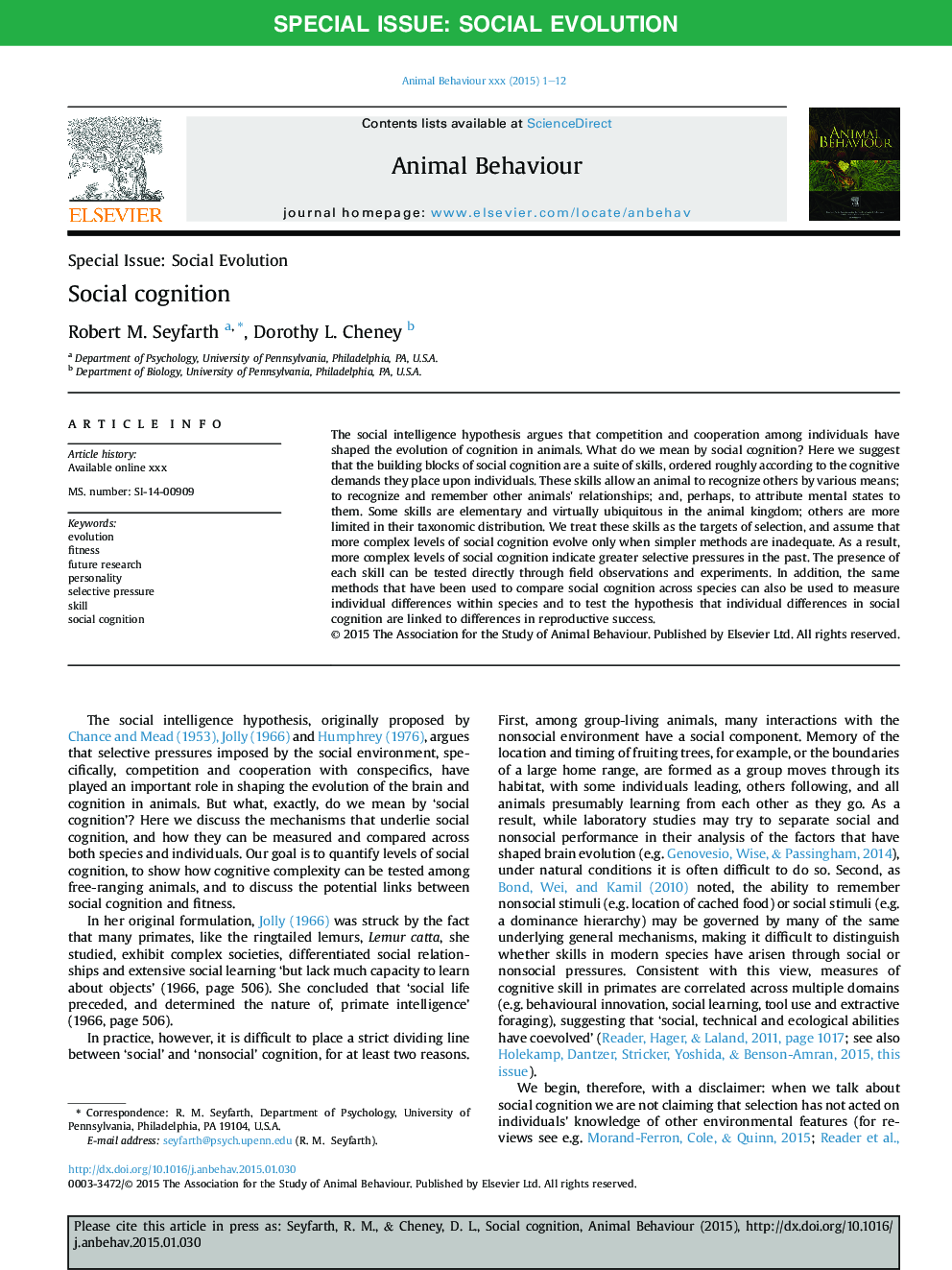| Article ID | Journal | Published Year | Pages | File Type |
|---|---|---|---|---|
| 8489964 | Animal Behaviour | 2015 | 12 Pages |
Abstract
The social intelligence hypothesis argues that competition and cooperation among individuals have shaped the evolution of cognition in animals. What do we mean by social cognition? Here we suggest that the building blocks of social cognition are a suite of skills, ordered roughly according to the cognitive demands they place upon individuals. These skills allow an animal to recognize others by various means; to recognize and remember other animals' relationships; and, perhaps, to attribute mental states to them. Some skills are elementary and virtually ubiquitous in the animal kingdom; others are more limited in their taxonomic distribution. We treat these skills as the targets of selection, and assume that more complex levels of social cognition evolve only when simpler methods are inadequate. As a result, more complex levels of social cognition indicate greater selective pressures in the past. The presence of each skill can be tested directly through field observations and experiments. In addition, the same methods that have been used to compare social cognition across species can also be used to measure individual differences within species and to test the hypothesis that individual differences in social cognition are linked to differences in reproductive success.
Related Topics
Life Sciences
Agricultural and Biological Sciences
Animal Science and Zoology
Authors
Robert M. Seyfarth, Dorothy L. Cheney,
